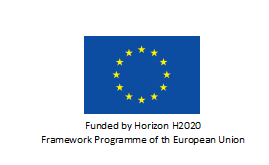AURORA 2021
Actionable eUropean ROadmap for early-life health Risk Assessment of micro- and nanoplastics

- Duration
- 01/04/2021 - 31/03/2026
- Coordinator
- Martine Vrijheid
- Funded by
- Horizon 2020 - European Commission
The scale of micro- and nanoplastic pollution (MNP) is becoming increasingly clear yet little is known about how this pollution impacts health.
The AURORA project will deliver an actionable European roadmap for early-life health risk assessment of MNPs to support regulation of MNPs and the products and processes that generate secondary MNPs, and development of safer alternatives.
We will focus on MNP exposures and toxicological and health effects during pregnancy, in utero, and in early life. These periods are critical for development and health later in life and are of heightened vulnerability to environmental insults. We have recently shown that MNPs are likely to cross the placental barrier in vitro and in vivo, underlying the urgent need to understand the impact of MNPs on reproductive and early-life health.
AURORA will do so by significantly enhancing exposure assessment capabilities for measuring MNPs and MNP-associated chemicals (e.g. additives) in tissues relevant for early-life development (placenta, cord blood, amniotic fluid, meconium, fetal tissue). It will take a unique approach by combining in-depth characterization methods (microscopy and spectroscopy) and scalable methods (mass-spectrometry) to develop methods for both detailed and large-scale toxicological, exposure assessment, and epidemiological studies. This will be combined with a novel tiered-testing approach and epidemiological investigations to provide the first extensive evaluation of maternal and fetal MNP exposures and health perturbations, including placental function, immune-inflammatory responses, oxidative stress, accelerated aging, endocrine disruption, and child development.
In the course of developing and applying the tools and methodological workflows of the AURORA research program, we will create a risk assessment framework specific to MNPs and identify the remaining knowledge gaps and priorities needed for comprehensively evaluating the impact of MNPs on early-life health.
Funding
Total: 5,996,315.00 €
ISGlobal: 310,703.75 €
Our Team
Coordinator
-
 Martine Vrijheid Research Professor and Head of the Environment and Health over the Lifecourse Programme
Martine Vrijheid Research Professor and Head of the Environment and Health over the Lifecourse Programme
ISGlobal Team
-
 MARIONA BUSTAMANTE Staff Scientist
MARIONA BUSTAMANTE Staff Scientist -
Payam Dadvand
Other projects
ENDOMIX
Understanding how endocrine disruptors and chemical mixtures of concern target the immune system to trigger or perpetuate disease
AM-MENTAL
What happens with your mental health when your supervisor is an algorithm?
PANAMA
Inhaled dose of air pollution - an integrative approach towards personalized air pollution exposure assessment in participants with and without respiratory diseases
e-QuoL
e-health tools to promote Equality in Quality of Life for childhood to young adulthood cancer patients, survivors and their families
B-Triage
Una prueba en el punto de atención para la estratificación del riesgo de los pacientes febriles basada en los niveles de sTREM-1
El microbioma intestinal y la disrupción circadiana
Un estudio epidemiológico molecular sobre enfermedades cardiometabólicas y salud mental
IHEN
International Human Exposome Network
EXPONIT
Analysing and studying how night shift work affects workers' circadian rhythms and health





